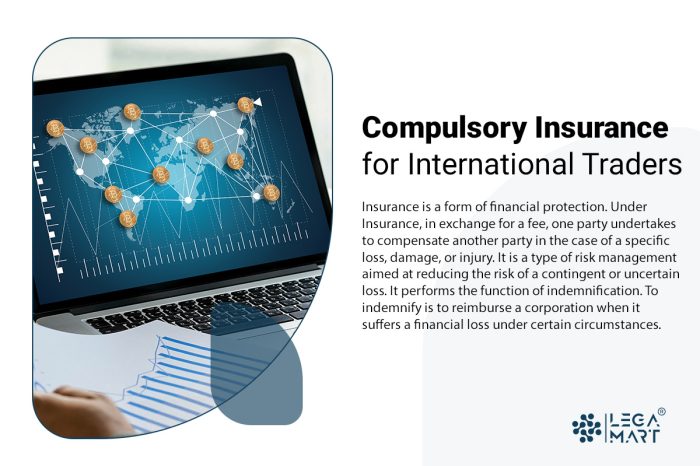Commercial and Business Law
Insurance
Dealing with insurance claims may be difficult and upsetting, especially if the cause is an urgent crisis in your company or a project you’re working on. Our worldwide liability and insurance team can allay your concerns thanks to their proven track record and established reputation in the field of liability and insurance law, including mass claims/private enforcement, policy coverage disputes, and regulatory insurance law challenges.
-
Reassurance and Global Risks
-
Policy Forms
-
Insurance legal issues
Reassurance and Global Risks
Commercial insurance is essential to international trade, and the Insurance Market has long been the world leader in big, complicated, and customised risk underwriting. In addition, The Market has a proud history of helping policyholders in times of need, never more so than in 1906, when Cuthbert Heath instructed his agents to “pay all of our policyholders in full, irrespective of the conditions of their policies” in response to the San Francisco earthquake. Notwithstanding the London Market’s well-known reputation for paying claims, it is a reality of business life that actual disputes do occasionally occur between policyholders and insurers regarding whether claims are covered, especially when the losses are significant.
Policy Forms
LegaMart’s skilled attorneys are well-versed in all facets of reinsurance and international risks, including pursuing claims under the following types of policies:
- Building / Erection Every Risk
- Political and Trade Credit Risks for Directors and Executives
- Institutions of finance
- Transactional Risks: Contingent Liability, POSI, Tax Indemnity, and Warranty and Indemnity
- Fraud and Integrity
- Political violence, terrorism, and technology
- Explicit Indemnity
- Property loss and interruption of business
- Reinsurance for public liability kidnap and ransom
Insurance legal issues
The attorneys of LegaMart have a wealth of experience with all pertinent legal matters, including:
- The use of current legislation
- Entrepreneurship Act 2016 and Insurance Act 2015
- Act of 2010 on Third Parties (Rights Against Insurers)
- Breaches of representations, promises, and conditions
- Disputes arising from Local and Master Policy
- Law conflicts
- Differentiation in Limits and Circumstances
- Coverage gaps between policy years
- Arbitration internationally
- Customised and standard form exclusions explained
- Inadequate warning
- Nondisclosure and false representation
- Area of cover disagreements
Find Best Lawyers and Legal help in
Latest Articles
Anmol Kaur
- October 28, 2022
Tell us more about your problem.
Please give a brief description about what it is you need to talk to our lawyers about ?
Frequently Asked Questions
What legal challenges arise in resolving insurance disputes between parties from different countries, particularly in cases involving differences in language, culture, and legal systems?
Resolving insurance disputes between parties from different countries can be complex and challenging, particularly when there are differences in language, culture, and legal systems. Some of the legal challenges that commonly arise in these situations include:
Language barriers: Communication issues can arise when parties do not speak the same language or when legal documents need to be translated. This can lead to misunderstandings and delays in resolving the dispute.
Differences in culture: Cultural differences can impact expectations and perceptions of what is considered fair or reasonable in a dispute, which can complicate negotiations and make it more difficult to find common ground.
Differences in legal systems: Different legal systems may have varying rules and procedures for handling insurance disputes, which can create confusion and uncertainty for parties involved.
To address these challenges, it is important to engage legal professionals who have experience with international insurance disputes and understand the nuances of working across different legal systems and cultures. Mediation or arbitration may also be useful tools to resolve disputes outside of court, as these methods can be tailored to the specific needs and preferences of the parties involved. Additionally, clear communication protocols should be established from the outset to ensure that all parties understand the process and their roles in resolving the dispute.
How do international organizations such as the International Association of Insurance Supervisors (IAIS) and the International Chamber of Commerce (ICC) influence the development of international insurance law and policy, and what role do they play in resolving disputes between insurers and policyholders from different countries?
International organizations such as the International Association of Insurance Supervisors (IAIS) and the International Chamber of Commerce (ICC) play an important role in shaping international insurance law and policy, as well as in resolving disputes between insurers and policyholders from different countries.
The IAIS is a global standard-setting body that develops and promotes best practices for insurance supervision and regulation. It works closely with national regulators and other international organizations to establish common standards for insurance regulation and promote cross-border cooperation.
The ICC has established several dispute resolution mechanisms, including the International Court of Arbitration and the International Centre for ADR, which can be used to resolve disputes between insurers and policyholders from different countries. The ICC also provides guidance on insurance policy drafting and interpretation and plays a leading role in promoting trade and investment through its work on commercial law and arbitration.
These international organizations can influence the development of international insurance law and policy by establishing guidelines and standards for insurance regulation, sharing best practices, and promoting cooperation among regulators and industry stakeholders. They also provide a forum for resolving disputes through alternative dispute resolution mechanisms or other means, helping to ensure that disputes are resolved fairly and efficiently regardless of the jurisdiction or legal system involved.
Overall, international organizations such as the IAIS and ICC play an important role in fostering international collaboration and promoting consistent regulatory and legal frameworks for the insurance industry, while also providing valuable resources for resolving disputes between insurers and policyholders from different countries.
How do multinational corporations manage their insurance programs across different jurisdictions, and what legal and regulatory challenges do they face in ensuring compliance with local laws and customs?
Multinational corporations face several challenges when managing their insurance programs across different jurisdictions, including legal and regulatory compliance, cultural differences, and language barriers. Some of the ways multinational corporations manage these challenges include:
Centralized insurance management: Many multinational corporations use a centralized approach to insurance management, with a global insurance department overseeing all aspects of insurance coverage and claims handling. This can help ensure consistency in insurance policies and procedures across different jurisdictions.
Local expertise: To navigate local laws and customs, multinational corporations often rely on local insurance brokers and lawyers who have knowledge of the relevant legal and regulatory frameworks in each jurisdiction.
Risk assessments: Multinational corporations conduct risk assessments to identify potential risks and exposures in each jurisdiction and determine appropriate levels of insurance coverage.
Compliance monitoring: Multinational corporations monitor compliance with local laws and regulations through regular audits and reviews of insurance policies and procedures.
Legal and regulatory challenges that multinational corporations may face include differing insurance requirements and regulations in each jurisdiction, varying standards for insurance policy interpretation and enforcement, and language barriers. They may also face challenges related to cultural differences, such as varying expectations around claims handling and dispute resolution.
To address these challenges, multinational corporations should work closely with experienced legal professionals and insurance brokers who understand the nuances of insurance law and regulation in each jurisdiction. They should also prioritize effective communication and collaboration among all stakeholders involved in insurance management to ensure compliance with local laws and customs and minimize any potential legal or regulatory risks.
What are the regulatory requirements for insurance companies operating in the United Kingdom, China, South Africa, or Brazil?
The regulatory requirements for insurance companies operating in the United Kingdom, China, South Africa, or Brazil can vary by country.
In the United Kingdom, insurance companies must be authorized and regulated by the Prudential Regulation Authority (PRA) and/or the Financial Conduct Authority (FCA). They must comply with Solvency II capital requirements, which establish minimum levels of capital that insurers must hold to ensure they have adequate reserves to cover potential claims. The UK also requires insurers to meet various consumer protection standards, including disclosing relevant information to customers about their policies.
In China, insurance companies must be licensed and regulated by the China Insurance Regulatory Commission (CIRC). Insurers must comply with a set of regulations that cover solvency, investment restrictions, and risk management practices. The CIRC requires insurers to maintain a minimum level of capital as well as reserves to cover expected claims.
In South Africa, insurance companies must be authorized and regulated by the Financial Sector Conduct Authority (FSCA), which sets standards for capital adequacy, risk management, and governance. South African insurers are required to comply with the Solvency Assessment and Management (SAM) framework, which sets capital requirements based on risk.
In Brazil, insurance companies must be authorized and regulated by the Brazilian National Council of Private Insurance (CNSP). The CNSP sets capital adequacy and solvency requirements, establishes mandatory coverage standards, and regulates premium pricing.
Overall, insurance companies operating in these countries must comply with a variety of regulatory requirements related to capital adequacy, solvency, risk management, and consumer protection. It is important for insurers to work closely with legal professionals who understand the nuances of insurance regulation in each country to ensure compliance and avoid any potential legal issues.
What are the legal considerations when drafting insurance policies in these countries?
When drafting insurance policies in the United Kingdom, China, South Africa, or Brazil, there are several key legal considerations to keep in mind.
Compliance with local laws: Insurance policies must comply with local laws and regulations in each country. This includes complying with national insurance laws and regulations as well as any specific rules or guidelines set by regulatory bodies.
Coverage requirements: Insurance policies should clearly describe the scope of coverage provided, including any exclusions or limitations on coverage. Policies should also be written in clear and concise language that is easily understood by policyholders.
Claims handling: Policies should establish clear procedures for filing claims and handling disputes. Policies should also specify the rights and obligations of both insurers and policyholders in the event of a claim.
Consumer protection: Insurers should ensure that policies provide adequate protection for consumers, including transparent pricing, clear disclosure of policy terms, and fair treatment of policyholders.
Dispute resolution: Policies should contain provisions for resolving disputes, including whether disputes will be subject to arbitration or litigation, and which jurisdiction’s laws will apply.
It is important for insurers to work closely with experienced legal professionals when drafting insurance policies in these countries to ensure that policies comply with local laws and regulations and provide adequate protection for all parties involved. By prioritizing compliance, clarity, and consumer protection, insurers can reduce the risk of potential legal issues and build trust with their policyholders.












